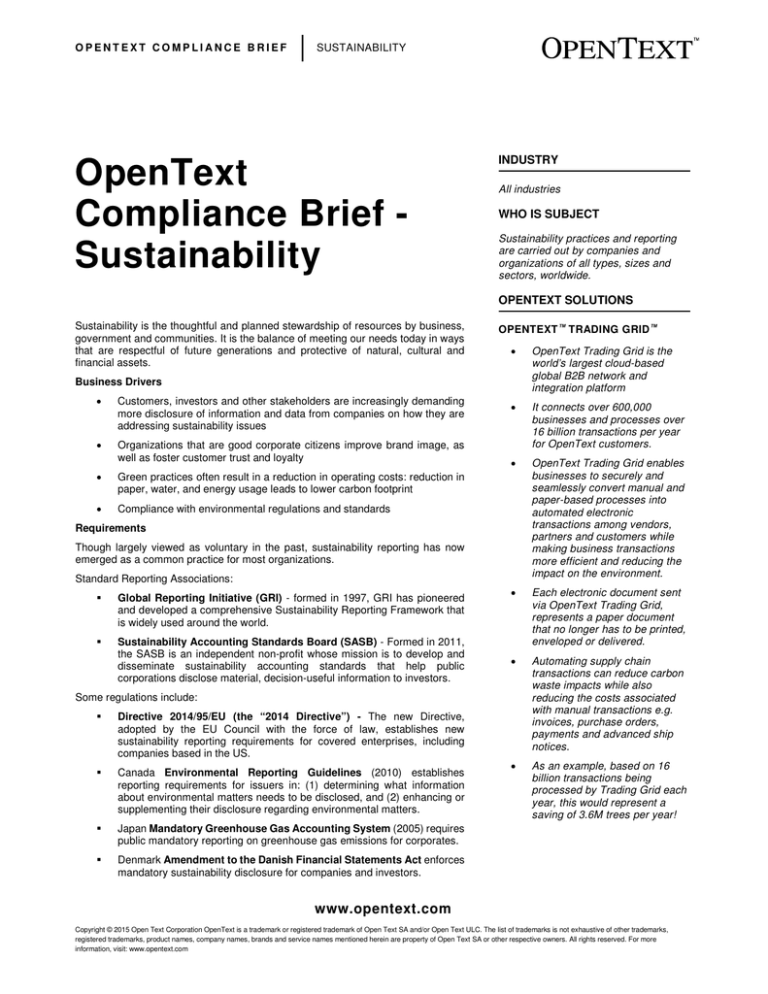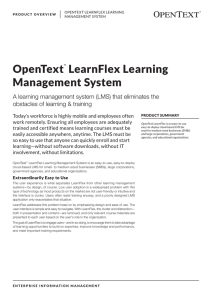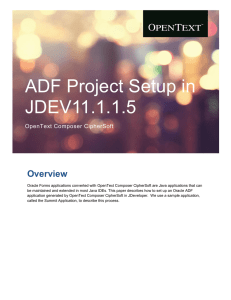
OPENTEXT COMPLIANCE BRIEF
SUSTAINABILITY
OpenText
Compliance Brief Sustainability
INDUSTRY
All industries
WHO IS SUBJECT
Sustainability practices and reporting
are carried out by companies and
organizations of all types, sizes and
sectors, worldwide.
OPENTEXT SOLUTIONS
Sustainability is the thoughtful and planned stewardship of resources by business,
government and communities. It is the balance of meeting our needs today in ways
that are respectful of future generations and protective of natural, cultural and
financial assets.
OPENTEXT ™ TRADING GRID™
•
OpenText Trading Grid is the
world’s largest cloud-based
global B2B network and
integration platform
•
It connects over 600,000
businesses and processes over
16 billion transactions per year
for OpenText customers.
•
OpenText Trading Grid enables
businesses to securely and
seamlessly convert manual and
paper-based processes into
automated electronic
transactions among vendors,
partners and customers while
making business transactions
more efficient and reducing the
impact on the environment.
•
Each electronic document sent
via OpenText Trading Grid,
represents a paper document
that no longer has to be printed,
enveloped or delivered.
•
Automating supply chain
transactions can reduce carbon
waste impacts while also
reducing the costs associated
with manual transactions e.g.
invoices, purchase orders,
payments and advanced ship
notices.
•
As an example, based on 16
billion transactions being
processed by Trading Grid each
year, this would represent a
saving of 3.6M trees per year!
Business Drivers
•
Customers, investors and other stakeholders are increasingly demanding
more disclosure of information and data from companies on how they are
addressing sustainability issues
•
Organizations that are good corporate citizens improve brand image, as
well as foster customer trust and loyalty
•
Green practices often result in a reduction in operating costs: reduction in
paper, water, and energy usage leads to lower carbon footprint
•
Compliance with environmental regulations and standards
Requirements
Though largely viewed as voluntary in the past, sustainability reporting has now
emerged as a common practice for most organizations.
Standard Reporting Associations:
Global Reporting Initiative (GRI) - formed in 1997, GRI has pioneered
and developed a comprehensive Sustainability Reporting Framework that
is widely used around the world.
Sustainability Accounting Standards Board (SASB) - Formed in 2011,
the SASB is an independent non-profit whose mission is to develop and
disseminate sustainability accounting standards that help public
corporations disclose material, decision-useful information to investors.
Some regulations include:
Directive 2014/95/EU (the “2014 Directive”) - The new Directive,
adopted by the EU Council with the force of law, establishes new
sustainability reporting requirements for covered enterprises, including
companies based in the US.
Canada Environmental Reporting Guidelines (2010) establishes
reporting requirements for issuers in: (1) determining what information
about environmental matters needs to be disclosed, and (2) enhancing or
supplementing their disclosure regarding environmental matters.
Japan Mandatory Greenhouse Gas Accounting System (2005) requires
public mandatory reporting on greenhouse gas emissions for corporates.
Denmark Amendment to the Danish Financial Statements Act enforces
mandatory sustainability disclosure for companies and investors.
www.opentext.com
Copyright © 2015 Open Text Corporation OpenText is a trademark or registered trademark of Open Text SA and/or Open Text ULC. The list of trademarks is not exhaustive of other trademarks,
registered trademarks, product names, company names, brands and service names mentioned herein are property of Open Text SA or other respective owners. All rights reserved. For more
information, visit: www.opentext.com



